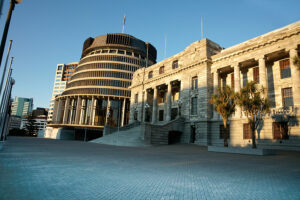NZ government signals strong support for biogas sector at industry forum

Speaking at the Biogas Bridge Forum in Wellington, Watts told delegates from across the energy, waste, agricultural and industrial sectors that biogas would play a central role in New Zealand’s transition to a more secure, affordable and renewable energy future.
He said biogas solutions, including biomethane, would help decarbonise hard-to-electrify sectors and strengthen regional resilience as natural gas reserves decline.
Watts announced that the government has established a dedicated Biogas Work Programme, driven by three core goals: sending clear signals to encourage industry investment, removing regulatory barriers and working closely with the sector to enable growth.
“You have made it clear that strong and consistent signals from Government are essential,” he said. “We are listening and we are responding.”
He confirmed that the Ministry of Business, Innovation and Employment, alongside other agencies, is actively identifying regulatory settings that may hinder progress, and committed to ongoing reform to support the emerging renewable gas sector.
He also emphasised the need for industry collaboration, calling the forum itself a strong example of cross-sector leadership in action.
As part of the government’s next steps, Watts unveiled a series of concrete actions. These include amending the Commerce Act through the Energy and Electricity Security Bill to bring biomethane pipeline services under the same regulatory framework as natural gas. This change, he said, would reduce uncertainty for investors and unlock growth in the renewable gas market.
Watts also announced a joint initiative between MBIE and the Ministry for the Environment to explore diverting biological waste from landfills to energy production. This work, he said, would reduce emissions while promoting a circular economy where waste becomes a resource.
The Energy Efficiency and Conservation Authority (EECA) is playing a key role by mapping the availability, seasonality, and energy potential of organic waste feedstocks suitable for anaerobic digestion.
The Minister said this data, made accessible through interactive tools, would support investor confidence and drive informed decision-making.
At the same time, the Gas Industry Company (GIC) is advancing work on a certification framework to ensure biogas quality, exploring renewable gas targets and updating operational rules to accommodate biomethane injection into existing networks.
Watts highlighted the importance of existing support tools such as the Waste Minimisation Fund and the Regional Infrastructure Fund, urging the sector to take advantage of them.
He also pointed to the newly announced Investment Boost in Budget 2025 as a major opportunity to back capital investment in clean energy infrastructure.
He further noted the potential of biogenic carbon dioxide - produced during biogas processing - to be captured and utilised under the government’s proposed Carbon Capture, Utilisation and Storage (CCUS) framework.
Under the plan, companies capturing and storing CO₂, including from biogas, could receive credits through the Emissions Trading Scheme, providing another incentive for low-emissions technology.
In closing, Watts thanked industry bodies GasNZ and the Bioenergy Association of New Zealand for convening the forum, calling their leadership critical to advancing biogas in the national energy mix.
“The government is here to support you,” he said. “We are listening, we are acting, and we are excited about what we can achieve together. Let’s keep the momentum going.”
















